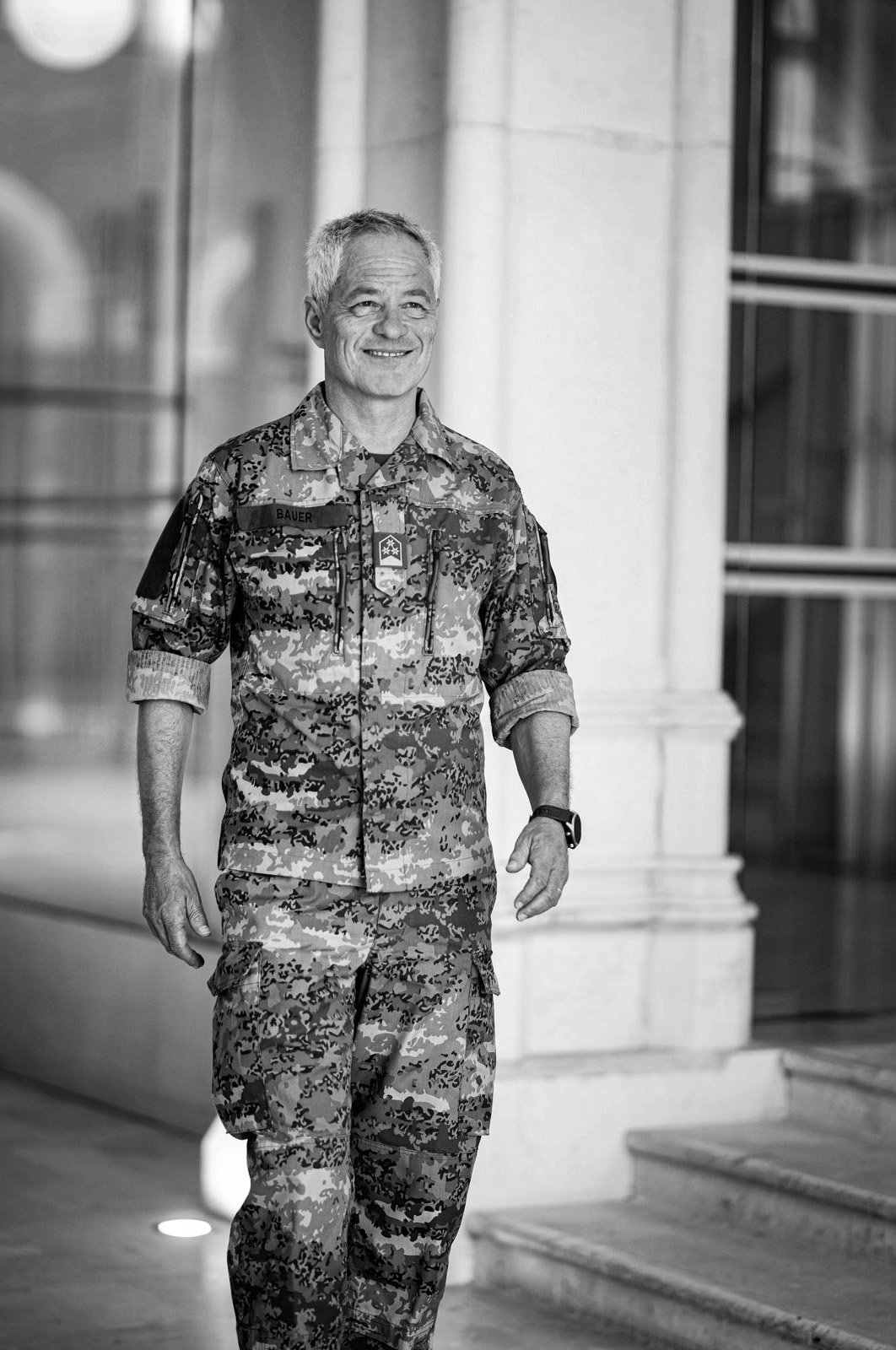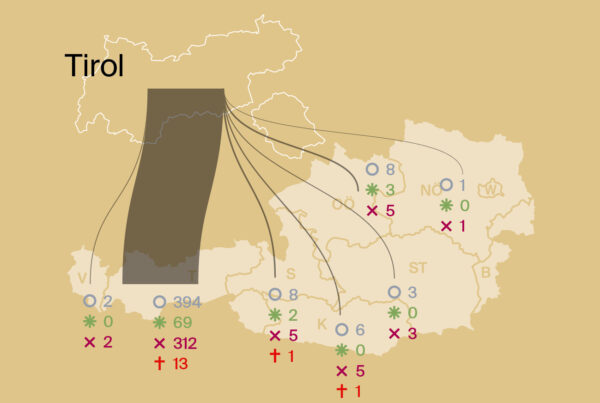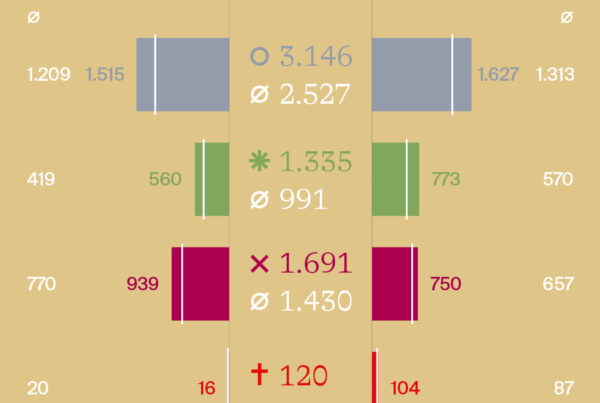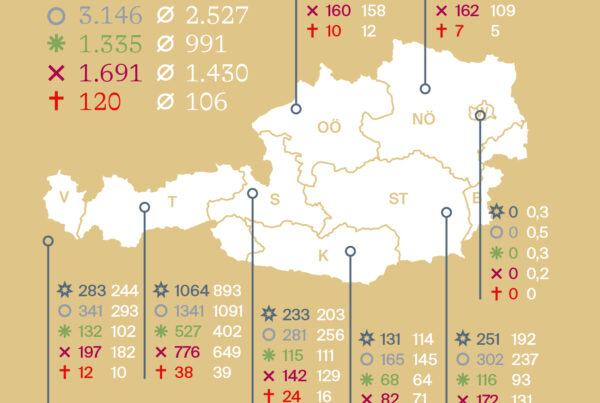
This post is also available in: German Czech Polish
“The advantage: I polarize. The disadvantage: I polarize.”
The Austrian Mountain Rescue Service (ÖBRD) organizes the annual Mountain Rescue Network Symposium together with the Austrian Road Safety Board (KfV) and ÖKAS. In 2024, one of the topics was “Social media: curse or blessing” and Colonel Michael Bauer spoke as press spokesman for the Austrian Ministry of Defense. This presentation was the highlight of the event. Nobody expected that the Austrian Ministry of Defense would have established a modern and efficient crisis communication system that makes clever use of the various social media. The crisis manager of the Austrian Armed Forces conclusively explained why Colonel Michael Bauer posts on his lead channel X – formerly Twitter as a person and under his own name. The representatives of all the organizations present benefited from his learnings and recommendations from 15 years of professional experience. However, as there was not enough time for all the questions, we spoke to Michael Bauer again.
In conversation:
Michael Bauer
Press Spokesman of the Austrian Federal Ministry of Defense
Interview:
Peter Plattner and Riki Daurer

↑ Michael Bauer after the interview with analyse:berg.
Photo: Carina Karlovits/Bundesheer
a:b
Colonel Bauer, what is your job in the army?
MB
I have been the spokesperson for the Austrian Ministry of Defense since 2010. My job arose from a crisis triggered by the Austrian Armed Forces: During an exercise in February 2009, several smoke hand grenades were detonated, the smoke from which made visibility on the Danube highway so poor that a pile-up resulted in one death and several serious injuries. As a consequence of the subsequent fatal communication by the army, many procedures were changed. The Minister of Defense has determined that there must be one person who should be and is the face and voice to the outside world. This applies not only to general communication, but also and above all to communication in crises. And I’ve been doing this for 15 years now, with a focus on communicating with the media.
a:b
What were the communication errors?
MB
We have analyzed this event and the following material capital errors were made:
- We did not have one person communicate, but 13.
- It took us a whole two days to issue the first official press release.
- We weren’t transparent; specifically, we didn’t always tell the truth, but tried to muddle through somehow.
- We didn’t show any compassion. I remember at the time we thought that showing compassion would have been a kind of admission of guilt. And we didn’t even know whether we were actually to blame.
All in all, we were “beaten up” by the media for several days, or rather weeks, for this incident. Which was no wonder, as we were always lagging behind the communication and couldn’t catch up on what we had missed in the first few days.
a:b
Was social media already an issue back then?
MB
No. The Austrian Armed Forces didn’t have a Twitter – now X – or a Facebook account back then. Although social media was the new thing back then, it was nowhere near as hype and important as it is today.
In any case, the crisis at the time led to us being able to develop a kind of “Ten Commandments” by analyzing and coming to terms with our mistakes. Since then, there have been repeated crises, but we have communicated them far better and more professionally and social media has already played a major role.
a:b
Social media, with its potential for shitstorms, is a blessing and a curse. Do the disadvantages outweigh the advantages for your work or is it actually a fair game?
MB
You know the rules of the game, you know how things work. A crisis doesn’t necessarily have to lead to a shitstorm. In the past, we’ve had crises – that’s what we’re talking about when someone dies – that have led to a higher volume and many inquiries on social media, but not to a shitstorm. Why is that? Because we communicated transparently, quickly and openly. A shitstorm is always triggered when people do things that are unnecessary or when the rules of social media are not adhered to.
Social media, especially X, is a suitable crisis tool. They offer the advantage of reaching many people in a short space of time. We have the opportunity to explain that something has happened, to say that we are sorry and that we are doing everything we can to help clear things up quickly and, if possible, make amends. We invite people to participate in this process and ask questions.
What has changed most significantly in the event of a crisis through social media is the speed. In 2009, we assumed that a press release a few hours after the incident was soon enough. Today, in my experience, to be first – and of course we want to be – we have about 15 minutes to send out the first tweet.
“You know the rules of the game.
A crisis does not necessarily
lead to a shitstorm.“
a:b
But is every shitstorm a crisis?
MB
No, I wouldn’t just see the shitstorm in a negative light. I also use opportunities to trigger a calculated shitstorm – perhaps even just a storm. Here’s a small example: At the last “Airpower”, the air show in Zeltweg that takes place every two years, I came across the menu for the employees. It contained only meat for both lunch and dinner. As we probably all know, there are a lot of people on social media who eat vegan for various reasons – meat is unhealthy, bad for the environment, etc. – so I was very conscious of this menu. I have therefore deliberately posted this meal plan in the knowledge that this will lead to increased communication, i.e. reach, with calculable consequences.
A shitstorm becomes negative when you don’t know why two hours after a post the net suddenly goes completely overboard. I usually already have an idea of the reactions it will trigger when I post.
Generally speaking, a shitstorm is something where the reach and the number of negative posts is suddenly so high – when the measurement or comparison factor of 100 suddenly becomes 1,000 and the comments are exclusively negative. And when you can no longer read the comments – let alone reply to them – due to the abundance of comments, then you have to admit to yourself: This is slipping away from me now.
The trick is to avoid a shitstorm if you want to avoid it. That’s why we have a four-eyes principle on our Facebook page right from the start: every post is read by two people in advance. For example, if the commander or the public relations officer of Jäger Battalion 24 in Lienz writes a post about the content of their mountain training, they post it in an internal, closed group and I and our Facebook officer look at the post. The post only goes online if we both agree that everything is right. Using this principle, we’ve actually managed to avoid even coming close to triggering a shitstorm on Facebook.
a:b
So a shitstorm is avoidable?
MB
I would say 80 percent are actually avoidable. You can usually work out what happens when you post certain things. Sometimes you think afterwards, well, we could have known that.
And then there are still 20 percent where you say, we didn’t know that. Here’s another example: On October 26, for the national holiday, we had a large military exhibition at Heldenplatz in Vienna. One of our postings shows a soldier wearing a badge on his uniform that he is not actually allowed to wear and that has a somewhat strange background. Some say it’s from the far right, some even say it’s National Socialist – it could be both. This “happened” to us because we simply hadn’t seen the badge.
a:b
Do shitstorms also arise on external channels and do you have this on your radar?
MB
Yes, media monitoring is crucial here. Of course, there are also shitstorms that happen somewhere else, but where we ourselves are the victims. But very rarely, because we are extremely well networked. There are also many people who send me a post on X or as a direct message from someone who is critical or negative about the armed forces and which I haven’t actually seen. Thanks to the “swarm intelligence” of many followers who are active in other networks, it is really rare that we don’t notice something that happens in the neighboring valley and is directed against our own village.
“Sometimes you are
powerless too.“
a:b
You communicate on X not as an organization, but as a person with your name and face. This will have advantages and disadvantages.







